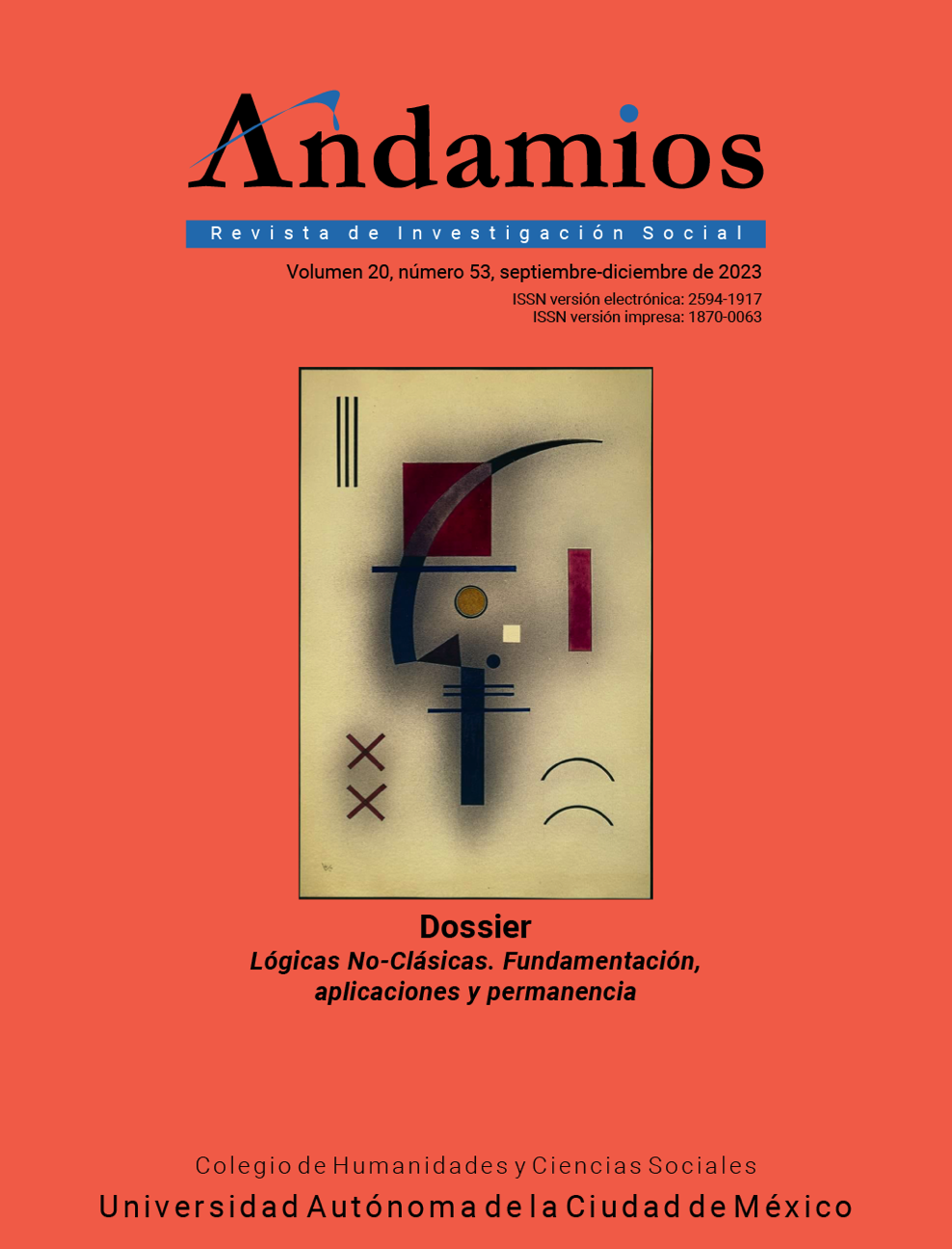Pluralismo lógico, corrección y tolerancia carnapiana
DOI:
https://doi.org/10.29092/uacm.v20i53.1029Keywords:
Pluralismo lógico, validez, corrección, lógicas no-clásicas, paradojas semánticasAbstract
El concepto de “pluralismo lógico” suele leerse como la idea de que hay dos o más lógicas correctas. Sin embargo, en algunas áreas de la práctica lógica, como la resolución de paradojas, la noción de corrección no juega un rol tan fundamental. En este artículo describo una versión distinta del pluralismo lógico, que se aplica de forma adecuada a estas disputas lógicas problemáticas. De acuerdo con este enfoque, la lógica (como ciencia) establece las reglas para la aceptabilidad de las teorías lógicas, mientras que los lógicos pueden contribuir al ofrecer enfoques nuevos, originales y técnicamente sólidos. Esto puede entenderse como un pluralismo carnapiano, donde todos pueden construir su propia lógica libremente, mientras cumplan con ciertas reglas metodológicas.Downloads
Published
Issue
Section
License
This Journal is licensed under Creative Commons Mexico 2.5. It is allowed to reproduce and disseminate the contents of the Journal for educational or research purposes, not for profit, as long as they are not mutilated and cite the source (Andamios, Revista de Investigación Social) and the author.
The copyright of the articles published in Andamios, Revista de Investigación Social are transferred by the author(s) to Universidad Autónoma de la Ciudad de México when the originals have been accepted, so that they are published and distributed both in the printed and electronic versions of the Journal. However, as established by law, the author(s) retains their moral rights. The author(s) will receive a form of assignment of copyright that they must to sign when their original has been accepted. In the case of collective articles, the signature of one of the authors will suffice, provided that the latter has obtained the consent of the others.
Authors may use the material of their article in other works or books published by themselves, with the condition of quoting Andamios as the original source of the texts.
The articles contained in this publication are the responsibility of their authors and do not compromise the official position of Andamios, Revista de Investigación Social of the Universidad Autónoma de la Ciudad de México.


